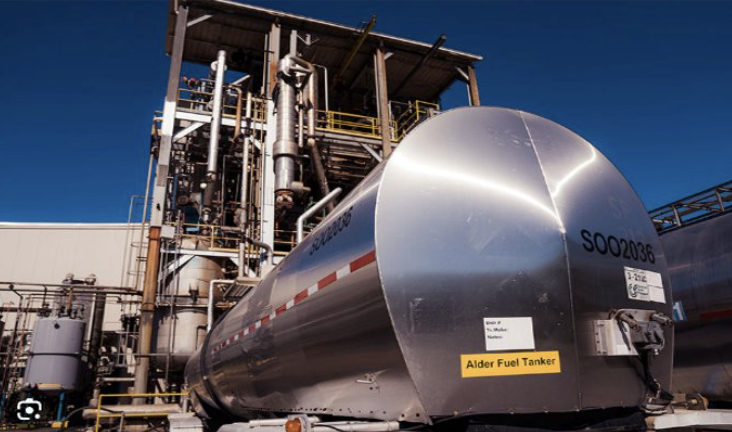
Alder Renewables, in collaboration with Quadrise, proudly announces the successful completion of rigorous small engine and corrosion testing of APS bioMSAR™—our advanced marine fuel blend combining Alder Pyrolytic Sugars (APS) derived from sustainable biomass and Quadrise’s MSAR® emulsion platform. The engine testing, conducted at Aquafuel research facilities, confirmed that APS bioMSAR™ achieves engine efficiency gains of up to 7 % under moderate loads (50–90 %) and up to 13 % when optimizing injection timing techniques. The enhanced efficiency translates directly to reduced fuel consumption and lower CO₂ emissions compared to conventional marine diesel.
Quantitatively, the testing demonstrated a well‑to‑wake CO₂ emissions reduction averaging around 26 %, driven by both the renewable glycerin and APS content and the fuel’s improved combustion properties. With further optimization, including injection timing adjustments, overall CO₂ savings could exceed 30 %, without incurring increased nitrogen oxide (NOx) emissions. Importantly, NOx emissions were found to be 25–45 % lower than those of diesel, depending on inlet air temperature control, with particulate and black carbon emissions also significantly reduced.
Corrosion testing was performed on representative marine engine materials to assess fuel compatibility and component integrity. Results showed no observable corrosion or material degradation, affirming APS bioMSAR’s suitability for integration into conventional marine fuel systems and engine infrastructure. This outcome builds confidence that the fuel can be implemented with minimal operational risk in real-world shipping environments.
These results mark a pivotal moment in Alder Renewables’ path to commercial deployment. APS bioMSAR™ delivers refinery-compatible biocrude performance, demonstrable efficiency gains, and robust emissions reductions—all while maintaining full compatibility with existing marine systems. We look forward to advancing to vessel-scale trials and partnering with marine operators to accelerate the global transition to low-carbon fuels.